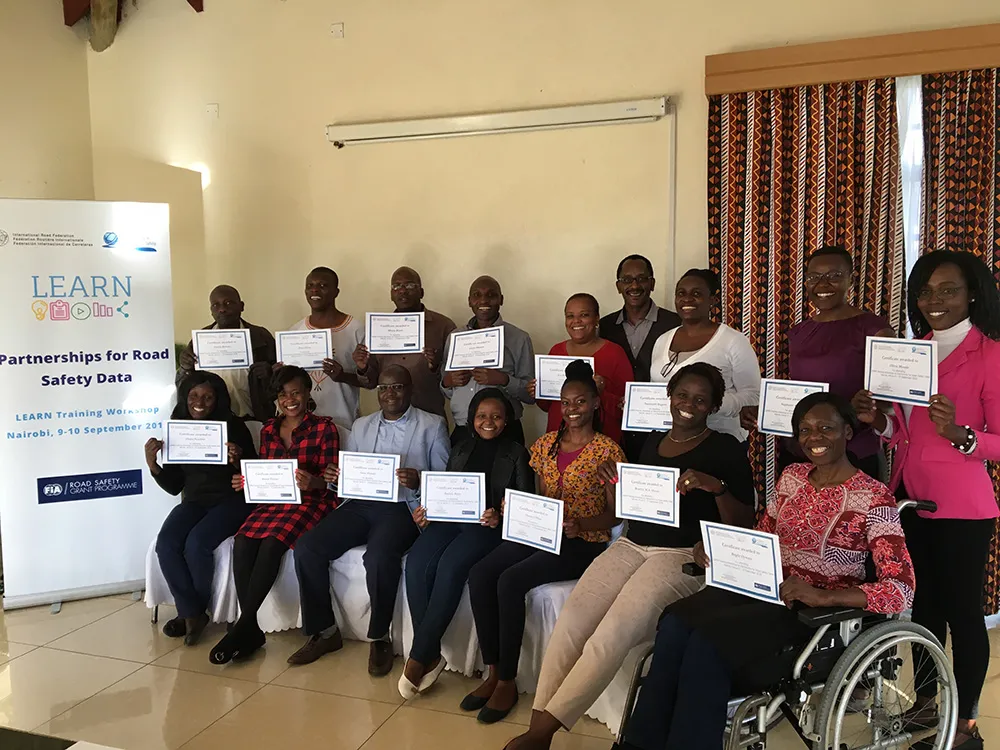
According to data reported by the Moroccan Comité national de prévention des accidents de la circulation (CNPAC), young people below the age of 14 represent 15% of all the deaths on Moroccan roads and the majority of these are pedestrians. Many of these fatalities are amongst children either going or coming back from school. Against this background, the International Road Federation (
The project aims at showing the added value of working together and in a systemic way. “We aim at federating in one single project different actors and different kind of initiatives - normally undertaken individually (data collection & analysis, RS inspections/audits, RS education) in order to maximise their impact. These individual initiatives/projects even when successful, are often short-term, limited in scope and so of limited impact in the longer term,” said Susanna Zammataro, IRF director general.
Younger children are limited by their physical, cognitive and social development, making them more vulnerable in road traffic than adults. Because of their small stature, it can be difficult for children to see surrounding traffic and for drivers and others to see them. In addition, if they are involved in a road traffic crash, their softer heads make them more susceptible to serious head injury than adults. Younger children may have difficulties interpreting various sights and sounds, which may impact on their judgement regarding the proximity, speed and direction of moving vehicles. Younger children may also be impulsive, and their short attention spans mean that they struggle to cope with more than one challenge at a time. As they grow older, children of adolescent age are especially prone to taking risks, compromising their safety on the road.
The World Health Organisation has published in 2015 a document outlining 10 strategies which are proven and evidence-based for keeping children safe on roads (WHO “Ten Strategies to keep Children Safe on the Road”). “The measures we propose in this project are fully in line with the recommendations provided by WHO in this document and embrace the idea of a systemic approach which is at the heart of the Safe System Approach concept,” Zammataro continued.
The project is articulated around six key activities. First comes identifying those schools in Casablanca that are “high risk” in terms of road safety and the team is then selecting three of these for further analysis as the second step. This will then examine why they are such a high risk schools and will be achieved by analysing existing data and collecting new data via survey, and observation.
A third stage is to organise education/information activities for the children within and around these schools, using as supporting tools a dedicated booklet and a dedicated App. The fourth stage is to organise education/information activities for drivers in the area. The bulk of the campaign will be carried out in collaboration with Société Nationale Autoroutes du Maroc (ADM) – a member of IRF - using resting areas of highways. The fifth stage is to organise training-of-trainers for staff of the Moroccan National Committee for the Prevention of Road Accidents (CNPAC) and other relevant Moroccan stakeholders active in the field of road safety. And the sixth is to design and implement cost-effective infrastructure remedies to ameliorate road safety around the identified schools and set-up a monitoring system.
Safe Roads, Safe Kids! aims at building an evidence-based case that can be replicated in the rest of Morocco and hopefully exported also to other francophone countries. A workshop convening the different partners to the project was organised in Casablanca from 5th-7th September 2018. Supported by the FIA Foundation, the workshop offered to the participants the opportunity to familiarise both with the methodology developed and used by AMEND around schools in Africa and also the iRAP School App. Participants to the workshop had a chance to put in practice these methodologies by performing the assessment of a school in an underprivileged area of Casablanca.
“Every child deserves a safe journey to school. It’s only by working together that we can ensure that this becomes a reality for every kid in the world, independently of the country, city or neighbourhood where he or she lives,” commented Susanna Zammataro.
To learn more on this project or to get involved, please contact IRF secretariat in Geneva at %$Linker:







